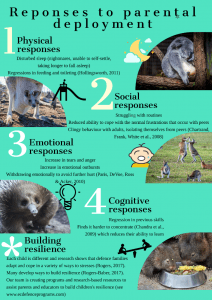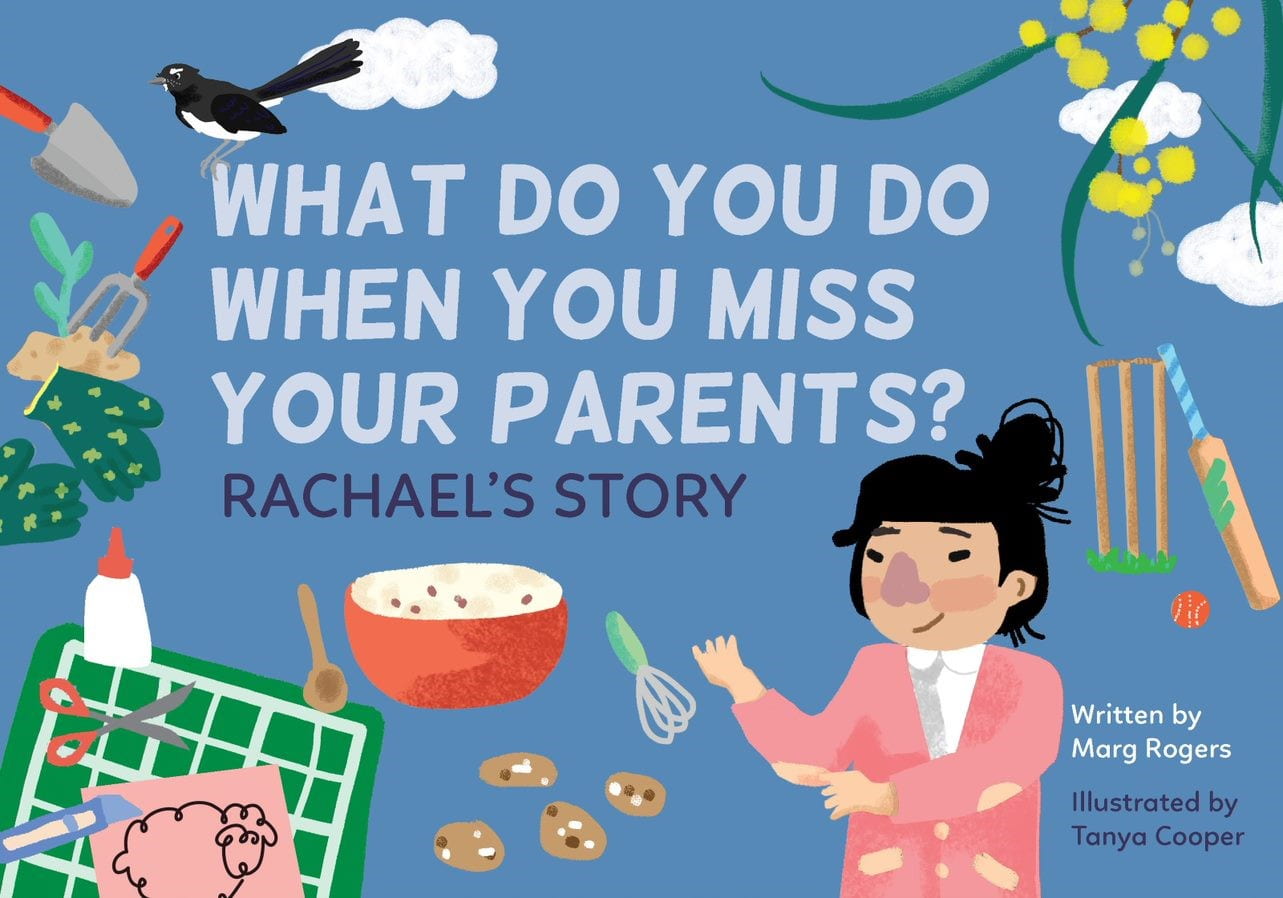It is always important to support young minds in difficult and unique circumstances. This is part of the motivation behind UNE Lecturer in early childhood education Dr Marg Rogers’ team’s research project, the Early Childhood Defence Programs (ECDP). The project is aimed at supporting young children by providing free, research-based age-appropriate Australian material to better support children from defence force families who face the many challenges of having a parent in the defence force.

The project is funded by The Ian Potter Foundation, the University of New England and the Foundation of Graduates of Early Childhood Studies. While Marg is heading the research team there are many unique perspectives and inspiring individuals who bring their expertise to the research team.
One of these individuals that has been an important part of the project is Tegan Kanard who is a member of the project’s Steering Committee. Tegan’s role involves finding participants to discuss the nature and impact of illness in the veteran community and how it impacts defence families. This key role informs the resources being created as part of the project.
One of the primary outputs for this project is a series of eBooks which Tegan has been providing subject matter expertise (e.g. veterans and partners of veterans who have given their physical health, mental health, or their life to service) for consultations for the eBooks.
While discussing the project more broadly Tegan described one of its beneficial aspects –the role the eBooks play in assisting children through long periods that their family might be separated during military service. Although this is not part of Tegan’s role, she notes it as an important part of the project. Tegan is also looking forward to the release of new eBooks in this project about injured veterans which will act as a resource for the veteran families to realise they are not alone.

“Sometimes when parents go away for periods, children can blame themselves and can create some interesting narratives around this,” explained Tegan. “This can be especially difficult for children who attend schools where there are no other Defence children so by default they are already ‘different’. By having books available to be read to them, they can hear and see that other children have similar experiences to them which I believe can assist with self-esteem. It gives them suggestions for activities to stay connected to their parent who is away on deployment.” Each book also has free, downloadable educational activities, including puzzles, puppets, matching games, literacy and numeracy activities, card games, board games, and sequencing activities for pre-school and primary school children.
 As with all members of this project, Tegan has a drive to support defence families – for her this comes from her own family. Tegan describes how her grandfather served in the Royal Australian Air Force and had operational service in World War Two, but it wasn’t until she started working with Legacy (an Australian charity that helps care for the families of veterans who have died or have significant health issues) that she discovered the truly unique challenges that military families face.
As with all members of this project, Tegan has a drive to support defence families – for her this comes from her own family. Tegan describes how her grandfather served in the Royal Australian Air Force and had operational service in World War Two, but it wasn’t until she started working with Legacy (an Australian charity that helps care for the families of veterans who have died or have significant health issues) that she discovered the truly unique challenges that military families face.
“I am grateful to be able to play a small part in the lives of some ex-Defence families and I advocate as fiercely as I can to help to create positive change,” said Tegan. “There are a lot of services out there for veterans but not many out there for the families.”
“The ECDP team at UNE (and Dr Amy Johnson from CQU as well) do an incredible job and are already making a difference. This research and program will continue to make a huge difference in the lives of children in the Defence and ex-Defence community both in the present and also in the future.
Another inspiring member of this project is Emily Small who joined the Steering Committee in early 2020. Since joining the team she has been involved in the development of a range of learning modules for both educators and parents. Through this Emily has been able to share her family experiences in the Australian Defence Force, as well as her perspective and experience as an educator in the early childhood field.
 Emily strongly supports that program’s focus on Australian defence families and Australian educators as assisting these groups will ensure excellent learning resources will be available for young minds that need them. When asked what supporting defence families means for her, Emily drew on the need for broad understanding and support:
Emily strongly supports that program’s focus on Australian defence families and Australian educators as assisting these groups will ensure excellent learning resources will be available for young minds that need them. When asked what supporting defence families means for her, Emily drew on the need for broad understanding and support:
“Truly supporting defence families for me means the coming together of many parts of our community to ensure skills and knowledge is shared and that everyone, despite any defence connection, has an understanding of the challenges military families can face. “
“The collaborative approach taken has been truly inspirational and the dedication shown by the team to bring these resources to fruition is a great achievement by all.”

Not only is Emily dedicated to this cause through her work on the program’s Steering Committee, she has also recently released her first children’s book ‘What Will I See On Anzac Day’. To find out more follow the link here.
The resources in the ECDP project are currently being evaluated in a series of control trials. Parents, educators, Family Workers, Social Workers, Defence School Mentors, and Education Development Liaison Officers can still register to evaluate the resources. Their feedback will help to improve the resources for future generations of children, parents, educators and family workers who use them.



Recent Comments